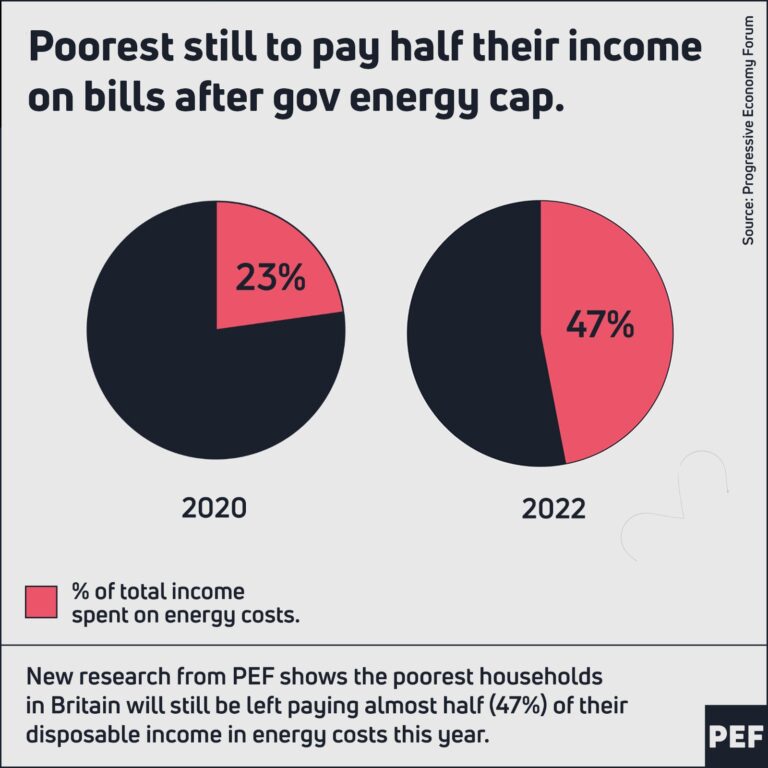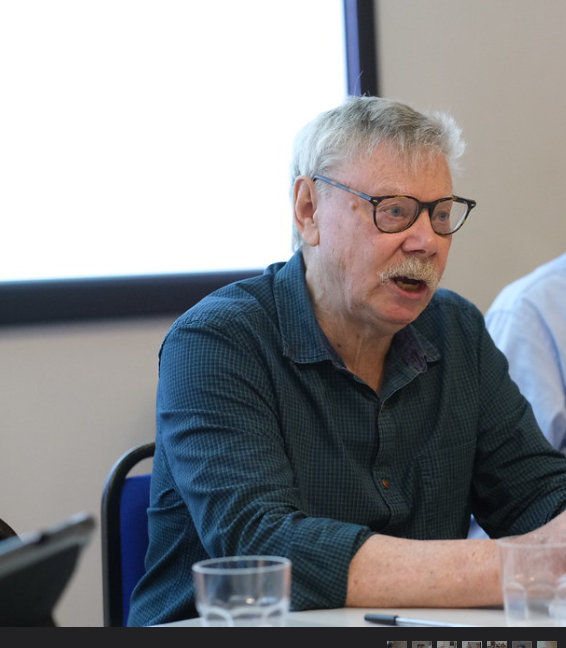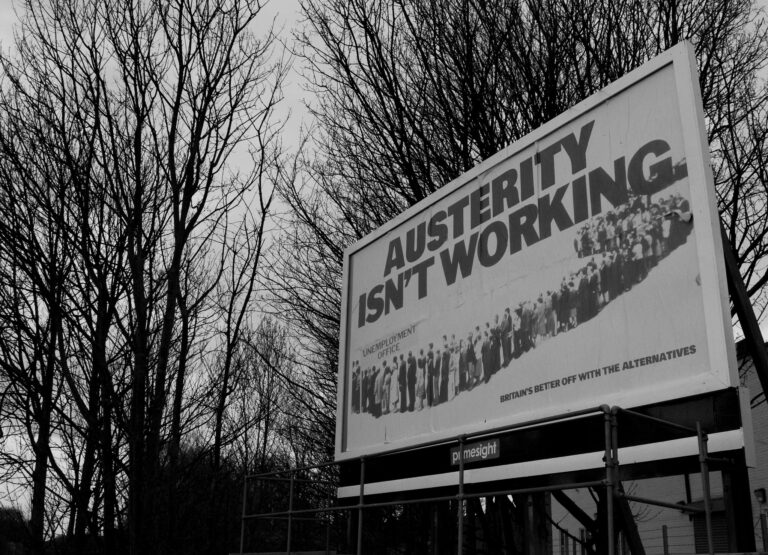The UN has issued a damning report on the UK’s policy failures over the past eight years, cataloguing and condemning the “unnecessary misery” inflicted on people in the name of austerity. The Progressive Economy Forum seeks to offer an alternative vision for economic leadership by curating a new blog series, 100 Policies to End Austerity.
Earlier this month, Professor Philip Alston embarked on a two-week tour of the UK – not to give lectures or to present at conferences, as one might expect of a visiting academic, but rather to investigate the UK in his official capacity as the UN Special Rapporteur on extreme poverty and human rights.
Over the course of his inquiry, Alston spoke to politicians of all stripes; met with civil society groups, community organisations and front line workers; and most notably, listened first-hand to the testimonies of people living in poverty. On Friday 16 November, the UN published a statement summarising his findings – one which can only be described as an excoriation of austerity.
Before moving on to these findings, it is worth noting that this isn’t the first time British austerity has been the object of such UN scrutiny. In 2015-6, the UK had the honour of being the first country investigated by the UN over “grave and systemic violations of the Convention on the Rights of Persons with Disabilities”. The investigating committee found that welfare ‘reforms’ – e.g. changes to Housing Benefit entitlement, the closure of the Independent Living Fund – enacted by the Conservatives in the name of austerity had indeed led to grave and systemic violations of disabled people’s rights.
But of course, the Government rejected all the recommendations made by the committee to rectify the situation.
Findings of the UN inquiry
Professor Alston’s statement – well worth reading in full – is nothing short of damning. It lays bare the extent of misery and poverty that the Government has visited on the most vulnerable people in our society. He has dutifully collated individual testimonies from the victims of austerity, and has interwoven these with statistical evidence showing that these stories are far from anecdotal or anomalous – they are representative.
“I needed full time care, and my husband had to leave his job. Suddenly we were living on disability. Then our landlord gave us eight weeks to vacate the apartment. We discovered that no one will let you view a house when you’re on disability benefits…. I do not know where I’ll be putting my child to bed soon. Should he be made homeless?”
Erin, Jaywick
“14 million people, a fifth of the population, live in poverty. Four million of these are more than 50% below the poverty line, and 1.5 million are destitute, unable to afford basic essentials. The… Institute for Fiscal Studies predicts a 7% rise in child poverty between 2015 and 2022, and various sources predict child poverty rates of as high as 40%. For almost one in every two children to be poor in twenty-first century Britain is not just a disgrace, but a social calamity and an economic disaster, all rolled into one.”
Professor Alston’s headline summary of the impacts of austerity
Austerity was a political choice
Most importantly, Alston does not accept the logic that such hardship was necessary. He puts it plainly in the conclusion of his statement:
“The experience of the United Kingdom, especially since 2010, underscores the conclusion that poverty is a political choice. Austerity could easily have spared the poor, if the political will had existed to do so. Resources were available to the Treasury at the last budget that could have transformed the situation of millions of people living in poverty, but the political choice was made to fund tax cuts for the wealthy instead.”
Earlier on in his report, Alston warns that discussing post-2010 policy under the rubric of ‘austerity’ risks implying that there was some underlying economic driving force that necessitated the cuts – the need to ‘eliminate the deficit’, for instance. Rather, the motivation for the cuts was “a commitment to achieving radical social reengineering”. He describes this social re-engineering as follows:
“great misery has… been inflicted unnecessarily, especially on the working poor, on single mothers struggling against mighty odds, on people with disabilities who are already marginalized, and on millions of children who are being locked into a cycle of poverty from which most will have great difficulty escaping”.
The Government’s response has been cold. The new work and pensions secretary Amber Rudd chose to respond to the statement by expressing her disappointment – not at the rapporteur’s findings on the extent of deprivation in the UK, but rather at the “political nature of his language”.
100 Policies to End Austerity
Theresa May and Philip Hammond may have flirted with the idea of “an end to austerity”, but there are more cuts to come. Until the government acts decisively to repair the unnecessary damage inflicted in its name, austerity will continue, regardless of rhetoric.
The UN report makes it clear that austerity is unnecessary, that to continue with it would be an explicit political choice. There are many routes from economic crisis to lasting recovery; austerity is not one of them, not least because of its high human cost.
This may be vehemently denied by conservatives, indicating a broader trend (noted by John Lanchester) for conservatives to depend less on moral justifications for their brand of capitalism and more on the insistence that there is no other option. Such obstinacy often translates into a refusal to see the hardships caused by austerity – see Conservative MP Kwasi Kwarteng’s response to the case of Emily Lyndon on The Andrew Marr Show for an example.
The Progressive Economy Forum seeks to present an alternative vision for economic leadership. By curating 100 Policies to End Austerity – a series of succinct, concrete and accessible proposals for elements of a renewed economic programme – we hope to paint a picture of what a better future could look like.
Together, these proposals will show us how we can end austerity for good and redress the harms it has inflicted – more broadly, how we can change the way our economy is run. You can see the first few entries in the series on our blog, and find out more about the series in our launch post here. If you would like to contribute to the series, please see our call for submissions.
Photo credit from previous page: Flickr / UN Geneva









